MIDIRS Midwifery Digest
The MIDIRS Midwifery Digest is an evidence-based quarterly journal for all maternity workers and students to share their knowledge and experiences to improve practice and outcomes.

Broaden your knowledge and skills, further your professional academic development or increase your confidence in day-to-day practice by subscribing to the MIDIRS Midwifery Digest and get:
- Quarterly delivery of the Digest in either a print or digital format
- A variety of in-depth original articles on research and practice
- Reprints of important and influential articles sourced from over 400 journals
- Critical analysis of published research and clinical studies
- Reports, reflections and reviews on events and other maternity academic resources.
Even better, the Digest is shipped worldwide! Wherever you are in the world you can receive the latest developments in midwifery practice.
Here you can find all previous Digest issues with full table of contents. If you would like to purchase a PDF copy of a back issue, please locate it below.
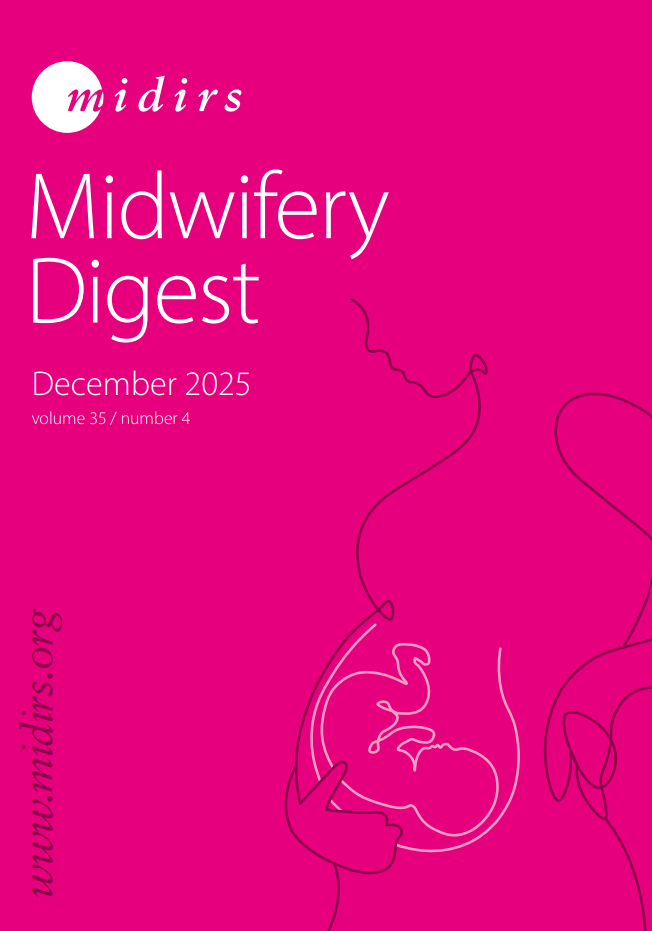
MIDIRS Midwifery Digest December 2025 – table of contents
2025
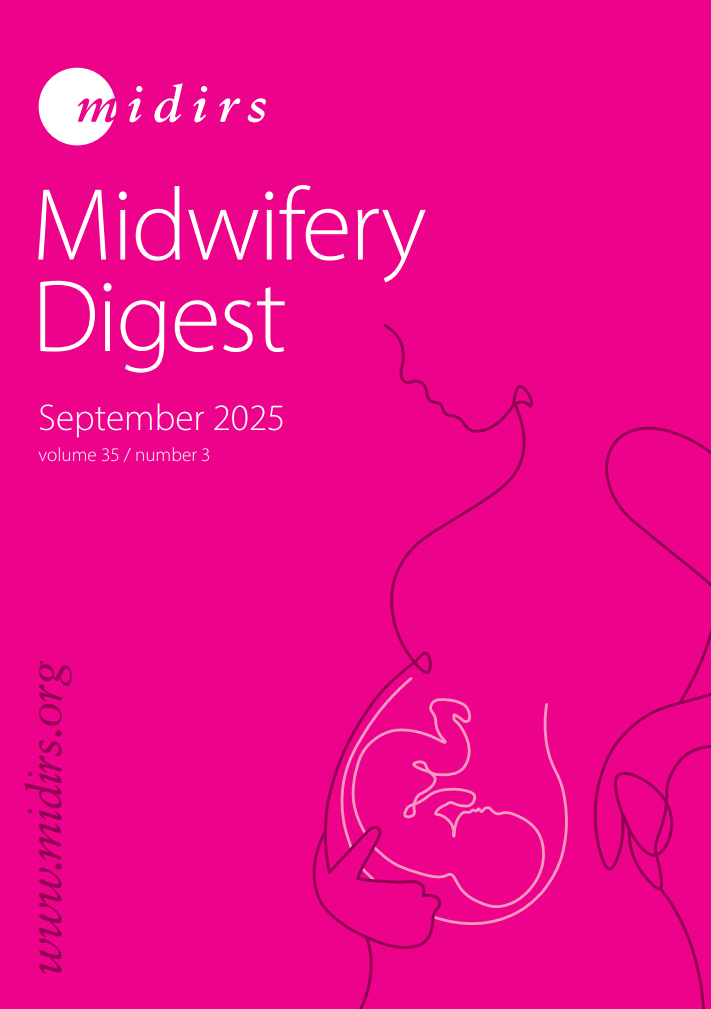
MIDIRS Midwifery Digest September 2025 – table of contents
2025
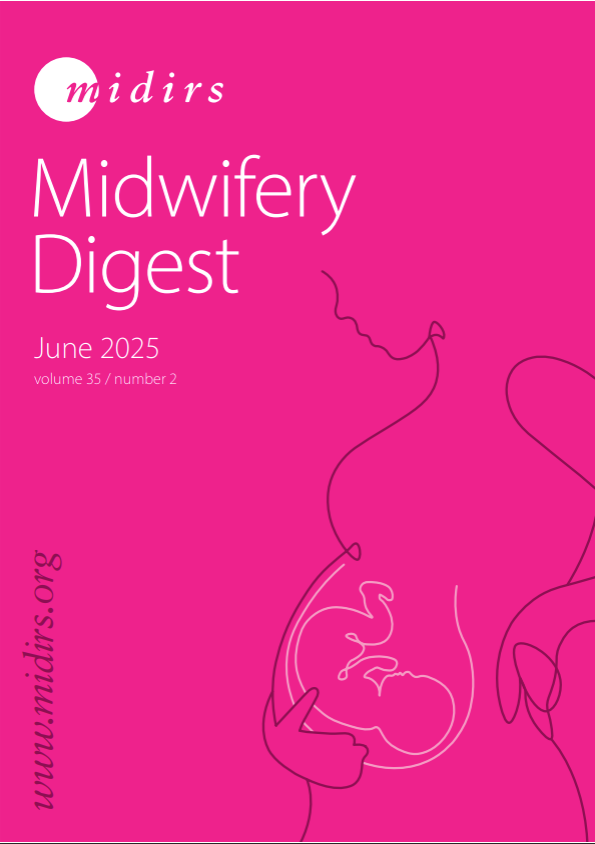
MIDIRS Midwifery Digest June 2025 – table of contents
2025
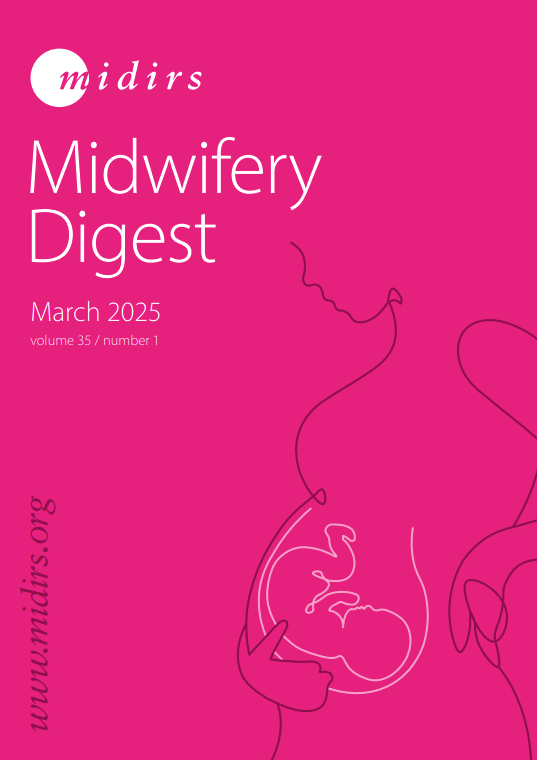
MIDIRS Midwifery Digest March 2025 – table of contents
2025
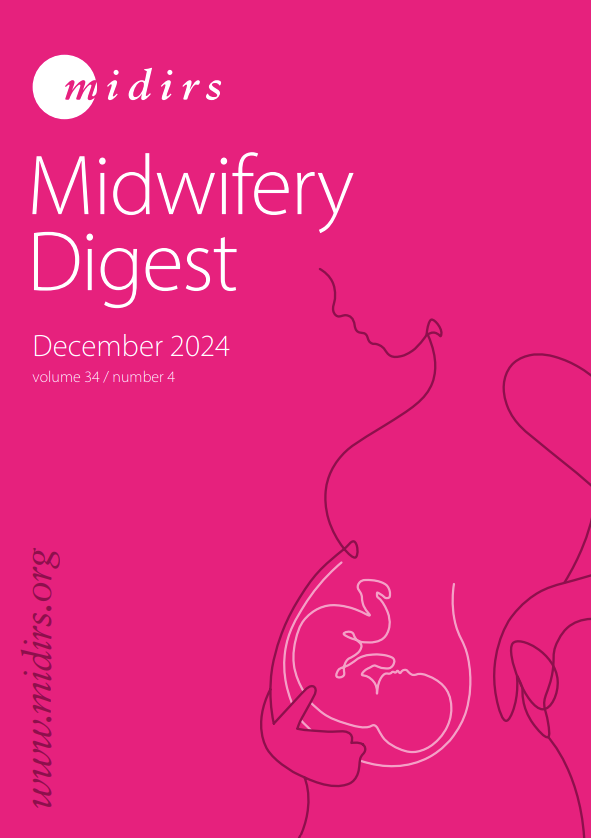
MIDIRS Midwifery Digest December 2024 – table of contents
2025
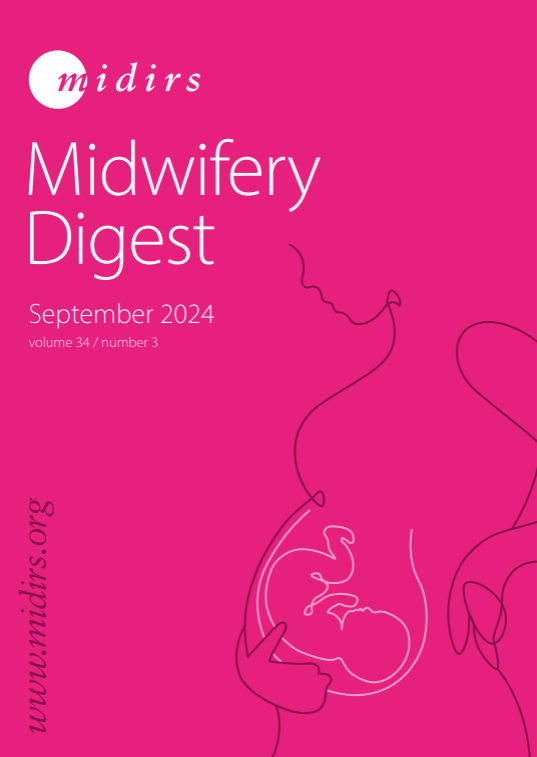
MIDIRS Midwifery Digest September 2024 – table of contents
2025
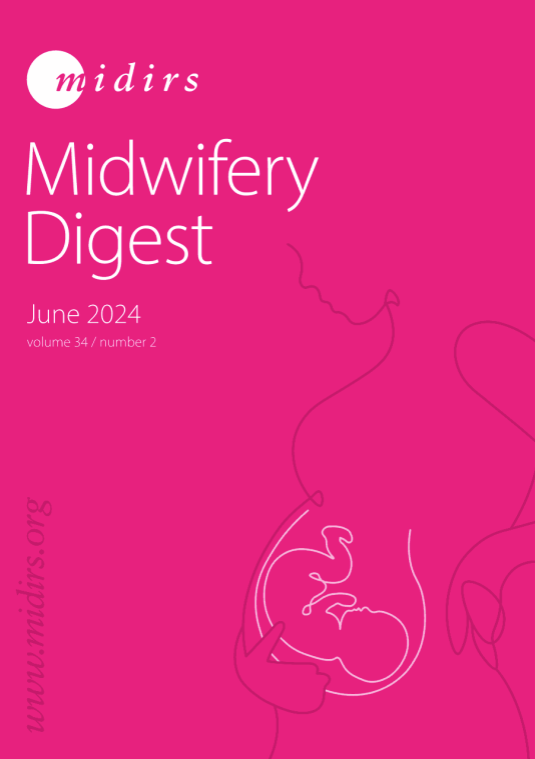
MIDIRS Midwifery Digest June 2024 – table of contents
2025

MIDIRS Midwifery Digest March 2024 – table of contents
2025
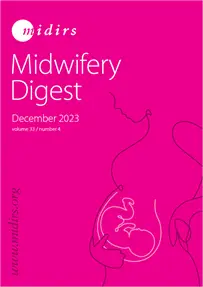
MIDIRS Midwifery Digest December 2023 – table of contents
2023
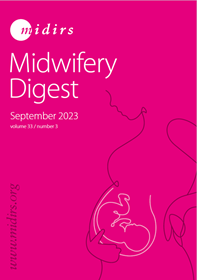
MIDIRS Midwifery Digest September 2023 – table of contents
2023
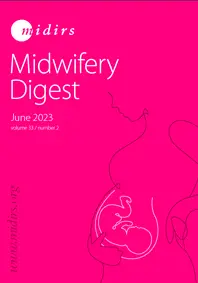
MIDIRS Midwifery Digest June 2023 – table of contents
2023
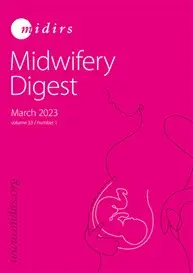
MIDIRS Midwifery Digest March 2023 – table of contents
2023
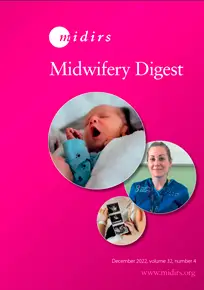
MIDIRS Midwifery Digest December 2022 – table of contents
2022
MIDIRS is here to allow all midwives, student midwives, Maternity Support Workers (MSWs) or any health professional caring for women, babies and their families worldwide, to share their knowledge and experiences to improve practice and outcomes. We are dedicated to helping you learn, grow and share from the start of your midwifery training all the way through your career.
We welcome original contributions from new, aspiring, or established writers.
Before you submit an article, please read our guidance documents below. Unfortunately, we are unable to accept or review articles that do not adhere to the guidelines.
The Editor reserves the right to revise material or to return it to the author for amendments before accepting it for publication. We also reserve the right to amend material during production in accordance with house style and the demands of space and layout. Copyright of original articles published in MIDIRS belongs to MIDIRS.
For informal inquiries, questions or support with your submission please contact MIDIRS Editor, Sara Webb: sara.webb@rcm.org.uk
MIDIRS Digest Issue
Author Submission Deadline
March 2026
Friday 12 December 2025
June 2026
Friday 6 March 2026
September 2026
Friday 12 June 2026
December 2026
Friday 11 September 2026
What articles does MIDIRS accept?
Advancing Clinical Practice
Primary Research
Secondary Research
Viewpoint and Discussion Pieces
De-mystifying Research
Guideline and Report Reviews
We welcome contributions on topics related to maternity care, including those mentioned above. To read a more comprehensive guide of the articles we accept, take a look at the document below.
Did you know that you can turn your dissertation into a publication?
Read the document below for tips and advice by Dr Sara Webb, MIDIRS Editor, on preparing academic writing for publication.
Plus, watch our recording of a Midwives-in-Training Research and Journal Review Club – a free resource for student midwives hosted by MIDIRS – for more advice from Sara herself on writing for publication.
Looking for inspiration on topics you could write about?
The RCMs Research Prioritisation Project has found the gaps in evidence across all areas of midwifery practice and maternity care. The project identified the top ten research priorities, aiming to influence funders and policy makers through highlighting where more research is needed. The top ten priorities are:

1. What is required to create and implement culturally safe maternity care in the UK for women and birthing parents, and their babies, and staff from the global ethnic majority? What role does decolonisation of the midwifery curriculum and ongoing learning in clinical settings play in improving cultural competence and safety?
2. What are the appropriate reasons for Induction of labour? What are the short and long term maternal and baby outcomes associated with it? How should this be communicated to women and birthing parents and their informed consent gained?
3. What are the important components of personalised maternity care to ensure informed choice and decision making and how should this care be provided?
4. How does the culture within the maternity services, including racism, incivility and other negative behaviours amongst staff impact on midwives, maternity support workers and maternity care assistants and what can be done to address this?
5. What factors mean that birth is becoming increasingly medicalised, and what are the long and short term outcomes resulting from interventions? How does medicalisation impact on the choices that women and birthing parents can make and the clinical care that they receive?
6. How can the causes and consequences of pre-existing psychological trauma during the perinatal period be better understood and prevented or the impact reduced? What role does trauma-informed care play in addressing it?

7. How can postnatal care be prioritised and improved so that mothers and birthing parents and their babies receive high quality care that meets their individual needs?
8. How can the maternity services improve bereavement care? How should the best available information be used by maternity services to improve the bereavement care experience for parents who suffer a loss in their current or previous pregnancies? What support and care provision should be available for families following a maternal death?
9. How can midwifery continue to be an attractive career for potential applicants? How can midwifery students and qualified midwives be helped to stay in the profession in a way that provides a positive work environment and supports the provision of safe and compassionate care?
10. What are the specific needs of neurodiverse individuals (including those undiagnosed) throughout their maternity care, and what knowledge, understanding and communication skills should maternity care professionals possess to provide safe and compassionate care?
We would welcome any contributions wishing to explore any of the research priorities as outlined by the RCM Research team. Contact MIDIRS Editor Sara Webb if you have questions about writing an article around the priorities, or for support with your article: sara.webb@rcm.org.uk